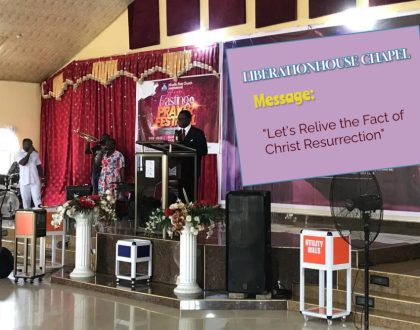Jesus, the King of Glory, entering Jerusalem to die.(Matthew 21:1-11)

The entrance of Jesus into Jerusalem was far different than the entrance of any King or Queen or a Governor coming to town for an important occasion or visit. The entrance of Jesus into Jerusalem was the most significant, greatest entrance in the history of the world. Many kings have entered cities it triumph, to the acclaim of its citizens. But they all pale into insignificance compared to the entrance of Jesus into Jerusalem. The imagery here is so significant in that it tells so much. This morning we’re going to look at one picture, that of Jesus arriving on a donkey. The first thing we should see is that by doing this –
Jesus is showing, publicly and nationally, that He is the long awaited Messiah King of the Old Testament prophecies.
Israel had been looking for this coming King ever since Jacob gave his blessing on Judah. In Genesis 49:10 Jacob said, “The scepter will not depart from Judah, nor the ruler’s staff from between his feet, until he comes to whom it belongs and the obedience of the nations is his.” And in Numbers 24:17, in Balaam’s fourth oracle concerning Israel, he predicted a King who would arise. He said, “A star will come out of Jacob; a scepter will rise out of Israel.”
Later in Israel’s history the Messiah became associated with King David’s house, with His kingdom. As we read in Isaiah 9:7 about the Messiah, “Of the increase of his government and peace there will be no end. He will reign on David’s throne and over his kingdom, establishing and upholding it with justice and righteousness from that time on and forever. The zeal of the Lord Almighty will accomplish this.” “the Messiah is the King par excellence.” Here, in His entrance to Jerusalem, Jesus makes it clear that He is that King. We see this from verses 2ff. As they approached Jerusalem, Jesus sent two disciples into Bethphage with these instructions. “Go to the village ahead of you, and at once you will find a donkey tied there, with her colt by her. Untie them and bring them to me. If anyone says anything to you, tell him that the Lord needs them, and he will send them right away.”
After they brought the colt and donkey to Him, Jesus rode into Jerusalem, fulfilling the prophecy of Zechariah 9:9. It reads, “Rejoice greatly, O Daughter of Zion! Shout, Daughter of Jerusalem! See, your king comes to you, righteous and having salvation, gentle and riding on a donkey, on a colt, the foal of a donkey.”
Jesus showed everyone who was in Jerusalem that He was the great King they were looking for. Alfred Edersheim writes, (The Life and Times of Jesus the Messiah, “From the moment of His sending forth the two disciples to His acceptance of the homage of the multitude, and His rebuke of the Pharisees’ attempt to arrest it, all must be regarded as designed or approved by Him: not only a public assertion of His Messiahship, but a claim to its national acknowledgement.”
It’s important that you allow this truth to penetrate to your heart. There is a great lie of Satan that has been around for at least the past years now that we need to see is not true. The lie teaches that Jesus never claimed to be the Messiah. They will tell you that Jesus’ disciples made up what we know as Christianity after Jesus died. They will tell you that the real Jesus was quite different from what we read in the gospels.
The whole lie is designed to get you to lose faith in the gospel narratives and in Jesus Himself.
There are two problems with this lie of Satan.
First, there’s no evidence that Christianity was founded by Jesus’ disciples and not Jesus Himself. It’s all speculation.
Perhaps you’ve heard of the quest for the historical Jesus. People discount the New Testament accounts and try to get behind them to the real Jesus. It’s a fool’s journey. Why? Because one person’s historical Jesus will be different from another person’s historical Jesus. In fact history records three different periods of quest for the historical. The first was in the 1700 and 1800’s. But none of them found the real Jesus. So a second quest was begun in the 1950’s. But that didn’t last long. Now there is what is called a Third Quest. But these scholars are deeply divided. Wikipedia,
“The ‘third quest’ is split between those scholars who advocate a return to a non-eschatological picture Jesus and those who see him as leading a eschatological restoration movement.”
Basically, if you let go of the New Testament documents you are left with not much more than your own imagination. These scholars do use some historical documents, but they also rely on a hypothetical Q document, which they believe was a source text used by both Matthew and Luke. But there’s no evidence that it ever existed. Another intentional methodology they use is to focus on the social environment of Jesus rather than on Jesus Himself to come up with a more accurate picture of Jesus. It’s nonsense. If you throw out the gospels you’re throwing out the baby with the bath water. You have nothing reliable left. The Jesus you come up with will be a figment of your imagination.
But the second problem with rejecting the gospel accounts of Jesus is that if you do so, you’re closing your eyes to the glory of Jesus in fulfilling the Old Testament.
Although these scholars who reject the New Testament will have you believe that all they are rejecting is the New Testament gospels—they are in fact rejecting much more. They are rejecting the Old Testament testimony to Jesus. What we should understand is that the Old and New Testaments are an organic whole. They fit together like your two hands with your fingers intertwined. These critics are saying that the New Testament gospels are not true—but if you look at them as they really are, the fulfillment of the Old Testament—it is clear that they don’t need to stand on their own—that the whole Old Testament bears witness to their truth.
As the Westminster Confession of Faith implies, (Chapter 1:5), this is not be enough to convince unbelievers of the truth of the Bible, yet “the heavenliness of the matter, the efficacy of the doctrine, the majesty of the style, the consent of all the parts, the scope of the whole (which is to give all glory to God), the full discovery it makes of the only way of man’s salvation, the many other incomparable excellencies, and the entire perfection thereof, are arguments whereby it doth abundantly evidence itself to be the Word of God;”
Christians, don’t miss these great truths. The unity of the message of both the Old and New Testaments ought to be something that strengthens your faith because it shows you that Jesus is the fulfillment of the Old Testament. Of course we need inward work of the Holy Spirit in our hearts gives us the, (Westminster Confession, 1:5) “full persuasion and assurance of the infallible truth and divine authority…”Yet these other things should give us a, “high and reverent esteem of the Holy Scripture”.
When you read about Jesus’ entry into Jerusalem and how it fulfilled the prophecy in Zechariah and how it fit in exactly with Jesus’ teaching and His mission—and you see how Jesus planned it all with the Father’s approval—Jesus telling His disciples to go and that they would find a donkey and her colt, and how in fact they were there (indicating God the Father’s approval)—this ought to fill you with wonder and awe and you should know that here Jesus was claiming to be the Messiah.
The second thing we should see here is that the coming of Jesus to Jerusalem was that the Great King came in humility, in meekness.
The scene before us is one of the most amazing in all of history. Jesus is publicly entering the holy city. What a moment of glory. This was the entrance of the King of Glory into Jerusalem. This is the One that we read about in Colossians 1:15–17, “He is the image of the invisible God, the firstborn over all creation. For by him all things were created: things in heaven and on earth, visible and invisible, whether thrones or powers or rulers or authorities; all things were created by him and for him.” How right for the people to praise Him! He was their Ruler. He was their life. What an honor He bestowed on you by coming to this earth.
Yet, we see the great King arriving on a donkey.
A king on a donkey is almost a contradiction of terms. John Calvin writes, “Now he adds what marks Him out as poor, that He rides on a donkey Ö for there is no doubt that he is contrasting the poor and common riding of a donkey with regal pomp.”
What’s going on here? It’s a concrete illustration of what we read in 2 Corinthians 8:9. “For you know the grace of our Lord Jesus Christ, that though he was rich, yet for your sakes he became poor, so that you through his poverty might become rich.” Or as we read in John 3:16, “For God so loved the world that he gave his one and only Son, that whoever believes in him shall not perish but have eternal life.” Jesus was entering Jerusalem in humility, coming as a servant. Leon Morris writes, “the important point in the prophecy is that this King is meek.” In the ancient world most kings entered a city on a war horse or a chariot at the head of his troops. But here Jesus comes on a donkey. He is entering as a servant. He is entering Jerusalem to die. He is coming into Jerusalem to be led like a lamb to the slaughter. (Isaiah 53:7)
Leon Morris, “When the prophet says that he comes riding on a donkey, he is contrasting him with “the chariot,” “the war horse,” and “the battle bow” (Zech. 9:10). It is the fact that the King is a man of peace that is distinctive. In antiquity a king would not normally enter his capital riding on a donkey. He would ride in proudly, on a war-horse, or perhaps he would march in at the head of his troops. A donkey was the animal of a man of peace;”
Alfred Edersheim writes, “there can… be no question that this prophecy was intended to introduce, in contrast to earthly warfare and kingly triumph, another Kingdom, of which the just King would be the Prince of Peace, Who was meek and lowly in His Advent, Who would speak peace to the heathen Ö” Jesus comes as a servant, as a King of Peace. An aspect of it that we see here is that
He came to offer peace.
Jesus was coming to a rebellious city. If you look at the context of Matthew 21 you’ll see that in chapter 20 He told His disciples that He was going to Jerusalem to die. He knew that this was a city which would soon be shouting about Him to Pilate, their chant growing louder and louder, (Matthew 27:22-23) “Crucify Him!” Verse 16 of Matthew 21 tells us some in the crowd were indignant at the crowd for their praise of Jesus. Luke’s gospel tells us that the Pharisees tried to stop the people from praising Jesus. (Luke 19:39)
Alfred Edersheim paints this picture of the scene, “He alone was silent and sad among this excited multitude, the marks of the tears He had wept over Jerusalem still on His cheek.” Yes, Jesus wept over this city that was going to kill Him. Hear His words in Matthew 23:37, “O Jerusalem, Jerusalem, you who kill the prophets and stone those sent to you, how often I have longed to gather your children together, as a hen gathers her chicks under her wings, but you were not willing.”
Jesus, the King of Glory, was entering Jerusalem to die. This was the grandest entry in the history of the world. He was without troops, without armor, without a chariot. He was coming humbly, as a servant.
For those of you who are not Christians, this means that you should accept Jesus.
Jesus came on a donkey to Jerusalem. He came without an army. He came without the 12 legions of angels that He could have called down to be at His side. (Matthew 26:53) Would you come to a city that you knew would cry out, “Crucify Him! Crucify Him!”, unarmed, defenseless? Would you come to that city with mercy, being willing to die for its citizens? Would you come to that city with sadness for them? Would you shed tears for them? Jesus did all of those things because He loves sinners.
Those of you who are not Christians should accept this King. You should honor Him. You should trust Him. Jesus is coming gently to you. He is the one who said, when they drove the nails through His hands and feet, (Luke 23:34) “Father, forgive them, for they do not know what they are doing.”
Matthew said of Jesus, (Matthew 12:20, see Isaiah 42:1-4) “A bruised reed he will not break, and a smoldering wick he will not snuff out, till he leads justice to victory.” In Matthew 11:29 Jesus said, “Take my yoke upon you and learn from me, for I am gentle and humble in heart, and you will find rest for your souls.”
Go to Jesus. Find life in Him. You’ll never find a better friend. Indeed, His weeping over Jerusalem before He entered it brings to mind the words He spoke as He was being led out to be crucified. Consider it. If you were being out to be crucified, you would be thinking primarily of yourself. How different it was with Jesus. In Luke 23:27–30 we read, “A large number of people followed him, including women who mourned and wailed for him. Jesus turned and said to them, ‘Daughters of Jerusalem, do not weep for me; weep for yourselves and for your children. For the time will come when you will say, ‘Blessed are the barren women, the wombs that never bore and the breasts that never nursed!’ Then they will say to the mountains, ‘Fall on us!’ and to the hills, ‘Cover us!'”
On the way to His crucifixion, Jesus was concerned about Jerusalem and the judgment it would face. Now is the day of salvation. Tomorrow may be too late. The next time He comes He will not be coming in gentleness, but with judgment, and then it will be too late. (2 Thessalonians 1)
For you who are Christians, how you should rejoice in having such a King.
This King loves you so much that He came to die for you. He comes to Jerusalem riding on a donkey. The people who were there rejoiced in their King. What a King! There is no One like Him. Christians, love Him, praise Him, and serve Him!
God bless you all.
Amen
Recent Sermons

Proofs of Christ Resurrection
April 11, 2023

Christ Jesus Resurrection
April 11, 2023

The Gospel of the kingdom
October 09, 2022

